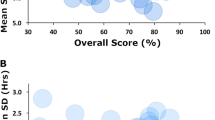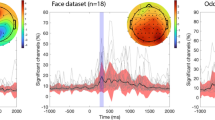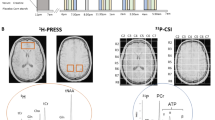Abstract
Evidence indicates that sleep after learning is critical for the subsequent consolidation of human memory. Whether sleep before learning is equally essential for the initial formation of new memories, however, remains an open question. We report that a single night of sleep deprivation produces a significant deficit in hippocampal activity during episodic memory encoding, resulting in worse subsequent retention. Furthermore, these hippocampal impairments instantiate a different pattern of functional connectivity in basic alertness networks of the brainstem and thalamus. We also find that unique prefrontal regions predict the success of encoding for sleep-deprived individuals relative to those who have slept normally. These results demonstrate that an absence of prior sleep substantially compromises the neural and behavioral capacity for committing new experiences to memory. It therefore appears that sleep before learning is critical in preparing the human brain for next-day memory formation—a worrying finding considering society's increasing erosion of sleep time.
This is a preview of subscription content, access via your institution
Access options
Subscribe to this journal
Receive 12 print issues and online access
$209.00 per year
only $17.42 per issue
Buy this article
- Purchase on Springer Link
- Instant access to full article PDF
Prices may be subject to local taxes which are calculated during checkout





Similar content being viewed by others
References
Walker, M.P. & Stickgold, R. Sleep, memory, and plasticity. Annu. Rev. Psychol. 57, 139–166 (2006).
Walker, M.P. & Stickgold, R. Sleep-dependent learning and memory consolidation. Neuron 44, 121–133 (2004).
Curcio, G., Ferrara, M. & De Gennaro, L. Sleep loss, learning capacity and academic performance. Sleep. Med. Rev. 10, 323–337 (2006).
Nissen, C. et al. Impaired sleep-related memory consolidation in primary insomnia—a pilot study. Sleep 29, 1068–1073 (2006).
Hicks, R.A., Paulus, M.J. & Johnson, J.C. Effect of REM sleep deprivation on electric shock threshold in rats. Psychol. Rep. 32, 1242 (1973).
Plumer, S.I., Matthews, L., Tucker, M. & Cook, T.M. The water tank technique: avoidance conditioning as a function of water level and pedestal size. Physiol. Behav. 12, 285–287 (1974).
Stern, W.C. Acquisition impairments following rapid eye movement sleep deprivation in rats. Physiol. Behav. 7, 345–352 (1971).
Smith, C. Sleep states and learning: a review of the animal literature. Neurosci. Biobehav. Rev. 9, 157–168 (1985).
Guan, Z., Peng, X. & Fang, J. Sleep deprivation impairs spatial memory and decreases extracellular signal-regulated kinase phosphorylation in the hippocampus. Brain Res. 1018, 38–47 (2004).
McGrath, M.J. & Cohen, D.B. REM sleep facilitation of adaptive waking behavior: a review of the literature. Psychol. Bull. 85, 24–57 (1978).
Gruart-Masso, A., Nadal-Alemany, R., Coll-Andreu, M., Portell-Cortes, I. & Marti-Nicolovius, M. Effects of pretraining paradoxical sleep deprivation upon two-way active avoidance. Behav. Brain Res. 72, 181–183 (1995).
van Hulzen, Z.J. & Coenen, A.M. Effects of paradoxical sleep deprivation on two-way avoidance acquisition. Physiol. Behav. 29, 581–587 (1982).
McDermott, C.M. et al. Sleep deprivation causes behavioral, synaptic, and membrane excitability alterations in hippocampal neurons. J. Neurosci. 23, 9687–9695 (2003).
Davis, C.J., Harding, J.W. & Wright, J.W. REM sleep deprivation-induced deficits in the latency-to-peak induction and maintenance of long-term potentiation within the CA1 region of the hippocampus. Brain Res. 973, 293–297 (2003).
Durmer, J.S. & Dinges, D.F. Neurocognitive consequences of sleep deprivation. Semin. Neurol. 25, 117–129 (2005).
Doran, S.M., Van Dongen, H.P. & Dinges, D.F. Sustained attention performance during sleep deprivation: evidence of state instability. Arch. Ital. Biol. 139, 253–267 (2001).
Kelley, W.M. et al. Hemispheric specialization in human dorsal frontal cortex and medial temporal lobe for verbal and nonverbal memory encoding. Neuron 20, 927–936 (1998).
Wagner, A.D. et al. Building memories: remembering and forgetting of verbal experiences as predicted by brain activity. Science 281, 1188–1191 (1998).
Brewer, J.B., Zhao, Z., Desmond, J.E., Glover, G.H. & Gabrieli, J.D. Making memories: brain activity that predicts how well visual experience will be remembered. Science 281, 1185–1187 (1998).
Rugg, M.D., Otten, L.J. & Henson, R.N. The neural basis of episodic memory: evidence from functional neuroimaging. Phil. Trans. R. Soc. Lond. B 357, 1097–1110 (2002).
Henson, R.N., Rugg, M.D., Shallice, T., Josephs, O. & Dolan, R.J. Recollection and familiarity in recognition memory: an event-related functional magnetic resonance imaging study. J. Neurosci. 19, 3962–3972 (1999).
Kirchhoff, B.A., Wagner, A.D., Maril, A. & Stern, C.E. Prefrontal-temporal circuitry for episodic encoding and subsequent memory. J. Neurosci. 20, 6173–6180 (2000).
Otten, L.J. & Rugg, M.D. Task-dependency of the neural correlates of episodic encoding as measured by fMRI. Cereb. Cortex 11, 1150–1160 (2001).
Friston, K.J. et al. Psychophysiological and modulatory interactions in neuroimaging. Neuroimage 6, 218–229 (1997).
Jackson, O., III. & Schacter, D.L. Encoding activity in anterior medial temporal lobe supports subsequent associative recognition. Neuroimage 21, 456–462 (2004).
Wagner, A.D., Shannon, B.J., Kahn, I. & Buckner, R.L. Parietal lobe contributions to episodic memory retrieval. Trends Cogn. Sci. 9, 445–453 (2005).
Moruzzi, G. & Magoun, H.W. Brain stem reticular formation and activation of the EEG. 1949 [classical article]. J. Neuropsychiatry Clin. Neurosci. 7, 251–267 (1995).
Saper, C.B., Chou, T.C. & Scammell, T.E. The sleep switch: hypothalamic control of sleep and wakefulness. Trends Neurosci. 24, 726–731 (2001).
Paller, K.A. & Wagner, A.D. Observing the transformation of experience into memory. Trends Cogn. Sci. 6, 93–102 (2002).
Eichenbaum, H. A cortical-hippocampal system for declarative memory. Nat. Rev. Neurosci. 1, 41–50 (2000).
Eichenbaum, H. Hippocampus: cognitive processes and neural representations that underlie declarative memory. Neuron 44, 109–120 (2004).
Drummond, S.P., Smith, M.T., Orff, H.J., Chengazi, V. & Perlis, M.L. Functional imaging of the sleeping brain: review of findings and implications for the study of insomnia. Sleep Med. Rev. 8, 227–242 (2004).
Sei, H., Saitoh, D., Yamamoto, K., Morita, K. & Morita, Y. Differential effect of short-term REM sleep deprivation on NGF and BDNF protein levels in the rat brain. Brain Res. 877, 387–390 (2000).
Basheer, R., Strecker, R.E., Thakkar, M.M. & McCarley, R.W. Adenosine and sleep-wake regulation. Prog. Neurobiol. 73, 379–396 (2004).
Frankland, P.W. & Bontempi, B. The organization of recent and remote memories. Nat. Rev. Neurosci. 6, 119–130 (2005).
Marr, D. A theory for cerebral neocortex. Proc. R. Soc. Lond. B 176, 161–234 (1970).
McClelland, J.L., McNaughton, B.L. & O'Reilly, R.C. Why there are complementary learning systems in the hippocampus and neocortex: insights from the successes and failures of connectionist models of learning and memory. Psychol. Rev. 102, 419–457 (1995).
Ellenbogen, J.M., Hulbert, J.C., Stickgold, R., Dinges, D.F. & Thompson-Schill, S.L. Interfering with theories of sleep and memory: sleep, declarative memory, and associative interference. Curr. Biol. 16, 1290–1294 (2006).
Blumenfeld, R.S. & Ranganath, C. Dorsolateral prefrontal cortex promotes long-term memory formation through its role in working memory organization. J. Neurosci. 26, 916–925 (2006).
Gutchess, A.H. et al. Aging and the neural correlates of successful picture encoding: frontal activations compensate for decreased medial-temporal activity. J. Cogn. Neurosci. 17, 84–96 (2005).
Chee, M.W. & Choo, W.C. Functional imaging of working memory after 24 hr of total sleep deprivation. J. Neurosci. 24, 4560–4567 (2004).
Weissman, D.H., Roberts, K.C., Visscher, K.M. & Woldorff, M.G. The neural bases of momentary lapses in attention. Nat. Neurosci. 9, 971–978 (2006).
Drummond, S.P. et al. Altered brain response to verbal learning following sleep deprivation. Nature 403, 655–657 (2000).
Paller, K.A., Kutas, M. & Mayes, A.R. Neural correlates of encoding in an incidental learning paradigm. Electroencephalogr. Clin. Neurophysiol. 67, 360–371 (1987).
Macmillan, N.A. & Creelman, C.D. Detection Theory: A User's Guide (Cambridge University Press, New York, 1991).
Rugg, M.D., Henson, R.N. & Robb, W.G. Neural correlates of retrieval processing in the prefrontal cortex during recognition and exclusion tasks. Neuropsychologia 41, 40–52 (2003).
Friston, K. et al. Statistical parametric maps in functional imaging: a general linear approach. Hum. Brain Mapp. 2, 189–210 (1995).
Friston, K.J. et al. Event-related fMRI: characterizing differential responses. Neuroimage 7, 30–40 (1998).
Buchel, C., Holmes, A.P., Rees, G. & Friston, K.J. Characterizing stimulus-response functions using nonlinear regressors in parametric fMRI experiments. Neuroimage 8, 140–148 (1998).
Acknowledgements
We thank R. Buckner, M. Rugg, R. Stickgold and E. Robertson for their insightful and helpful comments regarding these findings, and H. O'Leary for technical magnetic resonance imaging assistance. This work was supported in part by grants from the US National Institutes of Health (MH69,935 (M.P.W.); NS48,242 (S.-S.Y); RR19,703 (F.A.J.)) and the American Academy of Sleep Medicine (M.P.W.).
Author information
Authors and Affiliations
Contributions
S.-S.Y.: designing experimental protocols, conducting the experiments, analyzing the data and writing the manuscripts. P.T.H.: conducting the experiments, analyzing the data and writing the manuscript. N.G.: conducting the experiments, analyzing the data and writing the manuscript. F.A.J.: designing experimental protocols and writing the manuscript. M.P.W.: designing experimental protocols, conducting the experiments, analyzing the data and writing the manuscript.
Corresponding author
Ethics declarations
Competing interests
The authors declare no competing financial interests.
Supplementary information
Supplementary Fig. 1
fMRI group level encoding differences (depicted in the manuscript as Figures 2 and 4), displayed at the more liberal significance of P < 0.005; ≥ 5 contiguous voxels on glass brain MIP plots. (PDF 96 kb)
Supplementary Fig. 2
fMRI correlation analysis. (PDF 172 kb)
Supplementary Fig. 3
fMRI correlation analysis. (PDF 112 kb)
Rights and permissions
About this article
Cite this article
Yoo, SS., Hu, P., Gujar, N. et al. A deficit in the ability to form new human memories without sleep. Nat Neurosci 10, 385–392 (2007). https://doi.org/10.1038/nn1851
Received:
Accepted:
Published:
Issue Date:
DOI: https://doi.org/10.1038/nn1851
This article is cited by
-
A serial mediation model of social media addiction and college students’ academic engagement: the role of sleep quality and fatigue
BMC Psychiatry (2023)
-
NREM sleep as a novel protective cognitive reserve factor in the face of Alzheimer's disease pathology
BMC Medicine (2023)
-
Insomnia disorder with objective short sleep duration (ISS) phenotype and cognitive performance: a systematic review and meta-analysis
Neurological Sciences (2023)
-
Total sleep deprivation impairs visual selective attention and triggers a compensatory effect: evidence from event-related potentials
Cognitive Neurodynamics (2023)
-
Abnormal hippocampal substructure volume in insomnia disorder
Brain Imaging and Behavior (2022)



